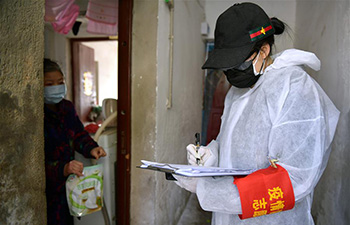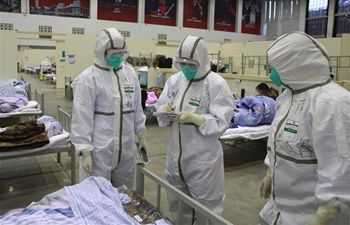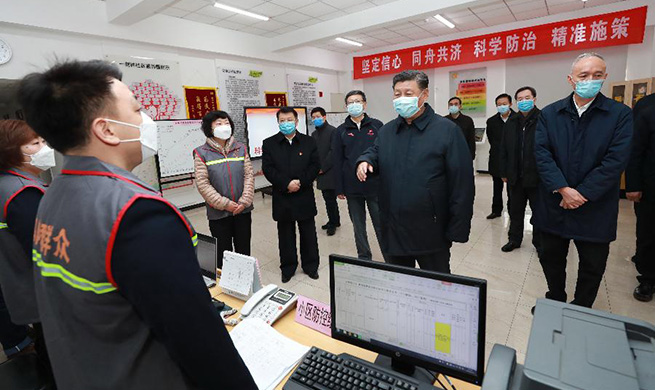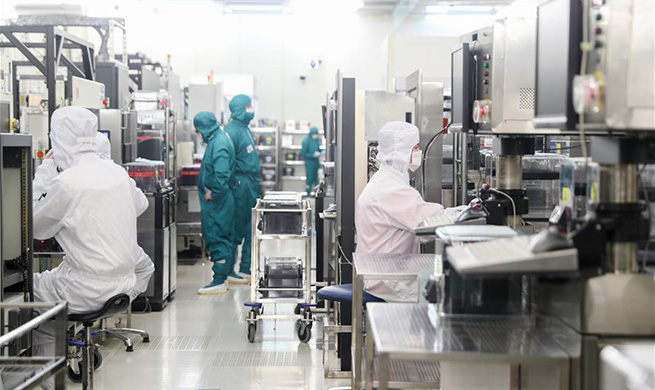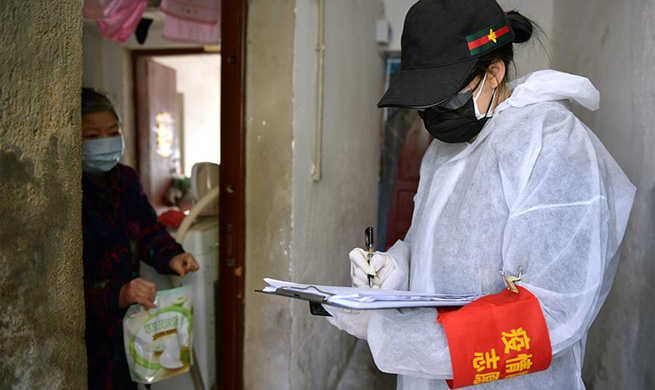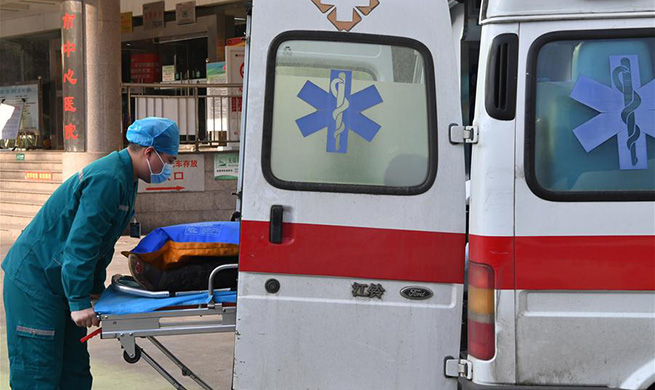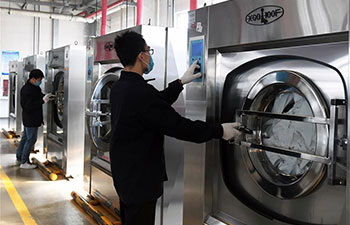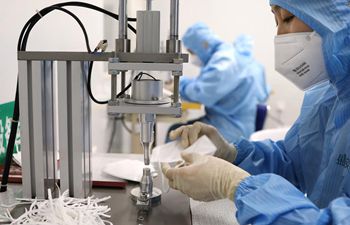ADDIS ABABA, Feb. 10 (Xinhua) -- The African Union (AU) has announced that it would embark on the second phase of the Programme for Infrastructure Development in Africa (PIDA) which will focus on smart and integrated corridor approaches, renewable source of energy, job creation, youth and gender sensitivity potentials of projects, as well as digitalization.
Speaking to the press on Monday in the framework of the ongoing 33rd AU summit at the AU headquarters in Ethiopia's capital Addis Ababa, the AU commissioner for Infrastructure and Energy, Abou-Zeid Amani, said the next PIDA would be implemented with a cost of 135 billion U.S. dollars, which she said is more costly.
PIDA is an AU flagship initiative adopted in January 2012 to support the overall objective of Agenda 2063 of the development of the socio-economic transformation of the continent over the next decades.
Running till 2040, PIDA was endorsed by all African heads of states to serves as the continental strategic infrastructure framework.
Noting that the first 10-year phase ends by the year 2020, the Commissioner said the next phase of the programme would be implemented from 2021 to 2030 in a comprehensive and more inclusive manner.
"We want to make sure that the new phase also includes and involves the lessons learnt from the first phase. The second phase is going to be even more costly in total almost 135 billion U.S. dollars; it is going to be very much gender sensitive and ensure gender inclusion along the value chain," said the Commissioner.
Reiterating that climate change severely affects Africa's infrastructure, the Commissioner said the second phase of PIDA takes such issues into account. "We insisted on smart technologies in all sectors; we insisted also on a comprehensive approaches what is called... approach and unlocking the rural areas and on climate resilience; remember many areas in our continent suffer from serious and more repetitive, more frequent shocks of climate and this is happening on the continent that is least responsible of any emission of we are among the most hit by climate change, and this destroys many of the infrastructure that we constructed over the years. The second phase has taken this element very much into account."
She also stated that in the year 2019 and throughout the year, with partnership in multi-agency team, which involves bodies including AU, ECA, regional economic communities (RECs), and other organs of AU developed digital transformation strategy for the continent.
"The digital transformation strategy has for the purpose to take the continent or to help the continent leap when it comes to for development. The fourth industrial revolution is promising a lot for the world and for us in Africa, we start to see many of our countries fantastic development thanks to digitalization."
"So, what we develop is a comprehensive strategy, meaning it addresses the whole sectors; it is also home-grown, it is an African strategy; to make sure that it is inclusive that everyone is in," the Commissioner has noted, reiterating that the pan-African bloc is building the strategy on strong partnerships that are supporting Africa in such endeavor.
"I am very happy to announce the strategy has been approved during this summit; and this is the very first time that we embark on such a comprehensive approach far beyond ICT, I am talking about all sectors so, agriculture, education, finance, e-governance, e-commerce, e-health and so on. Everyone is involved and everyone is concerned," she said.
The first PIDA Priority Action Plan (PIDA PAP I) comprises of 51 cross-border programmes which can consist of more than 400 actionable projects covering transport, energy, information and communication technology (ICT) and trans-boundary water projects.
The development and adoption of PIDA PAP II will build on the successes of PIDA PAP I, but also consider the challenges and lessons learnt during the implementation of PIDA PAP I to inform the development and adoption of PIDA PAP II.

